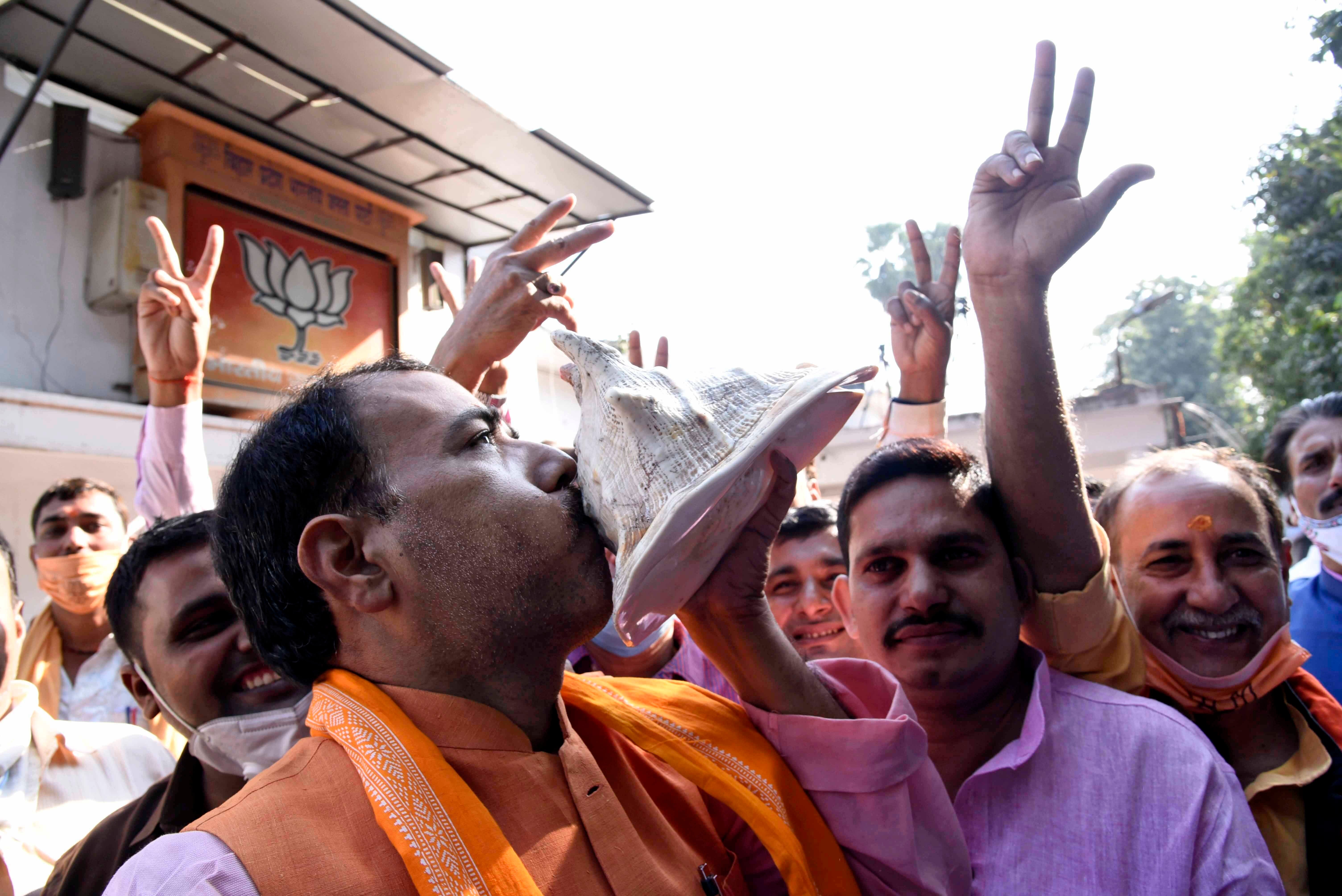Bihar: Modi coalition wins narrow victory in key state election amid anger at Covid response
An opposition party has emerged as the single largest party in a state heavily impacted by India’s early and abrupt coronavirus lockdown

An alliance led by prime minister Narendra Modi’s ruling party has secured a narrow win in the first major state election since the start of the pandemic, in results that have been keenly awaited across India.
After a fierce contest in Bihar, India’s second-most populous state, Mr Modi’s Bharatiya Janata Party (BJP) and a coalition including the incumbent chief minister have claimed 125 seats, barely crossing the 122-seat mark required to form a state government.
Analysts had called the election a referendum on Mr Modi’s handling of the Covid-19 crisis, which has seen more recorded cases in India than any country in the world other than the US.
And neither the BJP (with 74 seats) nor its coalition partner, Bihar chief minister Nitish Kumar’s Janata Dal United (43 seats), were as successful individually as the opposition Rashtriya Janata Dal party led by charismatic 31-year-old Tejashwi Yadav, which is set to become the largest single party on 75 seats.
The elections to the 243-seat assembly took place in two phases – in October and November – and counting began on Tuesday. A couple of days before the results were announced, several exit polls predicted a shock win for the alliance of opposition parties led by Mr Yadav’s RJD – in the end, they could only secure 110 seats combined.
The opposition had pinned its hopes on outrage in Bihar at the distress of migrant labourers who returned in huge numbers from major cities at the beginning of India’s national lockdown. Dozens died on the road, in a crisis blamed by many on a lack of foresight from the ruling BJP.
But with victory in the state, albeit a tight one, the BJP is now touting the result as a stamp of approval for Mr Modi’s broader handling of coronavirus. The government says it has contributed to the country having a higher recovery rate and lower fatality rate than many other heavily-impacted nations.
Professor Abhay Dubey of the Delhi-based Centre for the Study of Developing Societies (CSDS) said the Bihar result does indeed appear to underscore Mr Modi’s enduring popularity – particularly given the BJP vastly outperformed its local coalition partner.
The BJP had promised Mr Kumar would return as chief minister as a condition for the formation of its coalition, and Prof Dubey said there were “two ways of looking at the conundrum in which Nitish Kumar finds himself today”.
“His seats have been reduced and he has in fact become a junior partner to the BJP. However, what we also need to understand is that [voters from] the extremely backward caste, a section of Muslims and women voters have still voted for Nitish Kumar, and it is something that [the] BJP knows as well. If the BJP stops supporting Nitish Kumar this chunk of votes won’t transfer to them. Thus the BJP will continue to have him as an ally and the chief minister,” Mr Dubey told The Independent.
The success of Mr Yadav’s RJD, following on from an impressive performance in the previous election, shows the party is not just a flash in the pan. It claimed more than 23 per cent of the total vote share, outstripping the almost 19.5 per cent of the BJP.
The Bihar election as a whole has been a bruising affair, with Mr Modi and other key union ministers making several visits to speak in the state. But there have also been complaints about the standard of discourse and candidates in the state itself, which is one of the most economically backward in the country.
According to an analysis by the non-partisan Association for Democratic Reforms, of 241 successful candidates analysed, about 68 per cent have previously had criminal cases registered against them, an increase of 10 per cent since the previous Bihar election. These include serious cases against 123 candidates, relating to charges from kidnapping to murder, attempted murder and crimes against women.
With additional reporting by Namita Singh
Join our commenting forum
Join thought-provoking conversations, follow other Independent readers and see their replies
Comments



Bookmark popover
Removed from bookmarks